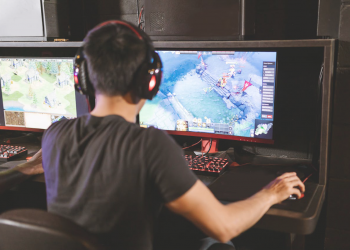It’s incredible watching corporate giants like Pepsi and United Airlines fumble their way through 2017. Both companies have recently shown epic examples of how to make young people despise a brand. Their PR disasters show just how important it is for brands to be constantly taking stock of how they are perceived by the next generation of customers, because without them, what do they have?
All sugar and no substance
Pepsi started the rot last week with its fantasy advert of model and TV personality Kendall Jenner bringing world peace and ending protestor and police clashes with a can of soft drink. As we all know it’s been hard to turn on the news recently without seeing a protest; it’s a symbol of these turbulent times as people have taken to the streets the world over.
President Donald Trump’s surprise election win was demonstrated globally, his Muslim travel ban saw the USA’s airports crowded in defiance, Black Lives Matter became the face of racial uproar and the Standing Rock pipeline was a David and Goliath battle. In the UK, the Brexit debate and shock result split the EU in two, resulting in right and left wing movements rallying across Europe. Before them, the Arab Spring protests sent shockwaves through the world and here in Australia Indigenous affairs have sparked standoffs in the streets.
With instant, unedited, unbiased and global access to images of these movements through social media (Facebook Live, for example), young people are growing up with immense immediacy. They feel connected on issues in a truly modern way. That’s why Pepsi’s hijacking of the global trend with its Kendall Jenner ad needed to tap the zeitgeist just right. After all, Pepsi are a commercial giant marketing a product for profit. They’re not known for battling for social justice, so in attempting to tackle the issues that impassioned protestors fire up over, it should be done with empathy and respect, not by trivialising them.
However, they did exactly that, showing Kendall Jenner, of Kardashian family fame (who certainly aren’t known for their everyday struggles), breaking away from a photo shoot to join a protest of teens and twenty-somethings. She hands a stern looking cop a Pepsi and in that instant the previously charged youthful crowd celebrates. It’s as if all their issues, expressed on Pepsi-brand coloured signs no less, are now solved. It commodified protest into an easily-digestible MTV-like package, instead of the truly significant, touchstone of democracy that it can and should be.
It’s no secret that brands attempt to tap into causes that will hit people in the feels, their power and influence lending weight and bringing positive change to an issue. But the causes themselves gain a deeper place in the consumer consciousness beyond the fizzy drink they sell. Young people deserve better than to be seen and shown so simplistically. The youth of today have too much knowledge at their disposal for that and knowledge, as we’ve all been told, is power. Pepsi realised the error of their ways and pulled the ad, it now serving as a good reminder to treat young people like adults.
Seated and beaten
United Airlines in the USA also potentially lost a generation of young customers when police manhandled a doctor off an overbooked flight to free up seats for their own workers. The confronting images of 69-year-old Dr David Dao being dragged away bloodied and semi-conscious were on the internet almost as soon as it happened. Fellow passengers were outraged and soon enough the world was too. Those over the top scenes on the United Airlines jet are likely to be burnt into some peoples’ memories for life.
It was another example of a brand completely misjudging their actions and the world around them. Why United called the police on a passenger for their own mistake in front of 100 camera-carrying witnesses will go down in the books of PR disasters – one of the worst in aviation history no doubt. Their policy was small thinking writ large. Brands need to be thinking big about even the smallest things, not least their customers because reputations are so easily captured with smartphones and social media, not to mention the memes.
“After our team looked for volunteers, one customer refused to leave the aircraft voluntarily and law enforcement was asked to come to the gate,” a United spokesman said, following a script that was purposefully devoid of any responsibility. But it didn’t stop there, after that wafer-thin response, United Airlines’ CEO Oscar Munoz later said, “I apologise for having to re-accommodate these customers,” with “re-accommodate” becoming a new description for dragging someone forcibly from their seat.
The incident became a lightning rod for other passengers to air their dirty laundry of horrendous customer service with the airline, people recounting stories from decades ago showing you just how far memories can go back with bad brand experiences. Without going into the myriad issues this incident threw up, the overarching point to take away is that young people are used to a world where the balance of power has tipped back to the customer, where a single bad interaction can be amplified thousands of times. And yet it seems that companies still forget this on a regular basis. Brands need to have both feet firmly planted in this new reality because, evidently, some are dragging a leg behind.
Coincidentally, United Airlines CEO Munoz started his career at Pepsi in the 1980s. His current company and his former one both need to think young and think fresh in how they connect with their customers because protests don’t just rage in the streets these days. They also rage online.





